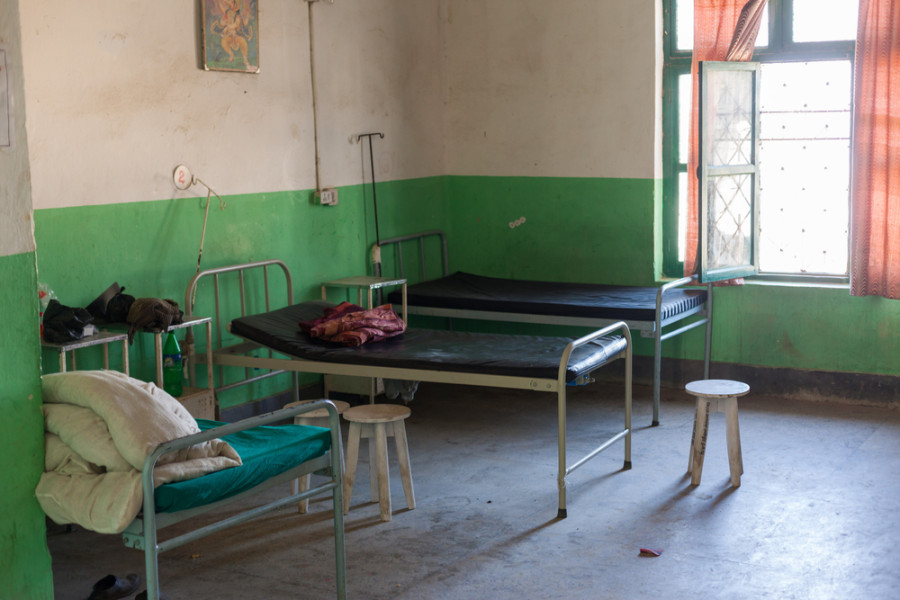Editorial
Governments at all levels have been failing in healthcare provision
Health budget is inadequate, and coordination among the provinces and the state is lacking.
Nepal’s healthcare sector is facing many problems currently, so much so that the Health Minister Upendra Yadav has admitted that his ministry is unable to do anything about it. That Yadav, who is also the deputy prime minister, accepts that he or any other minister in his place can do ‘nothing except deliver speeches’ speaks volumes of the ability and confidence of our political leaders at the top. One of the major issues currently is the federal health ministry being unable to coordinate with provincial health offices so that federally supported programmes are better implemented. Another major issue is the inadequate budget the government has allocated for the healthcare sector. This sector is an essential one that affects the very lives of every Nepali directly, thus needs to be accorded an important place in the government’s plans and policies.
In terms of essential diagnostic and treatment services, it has long been an issue that people in rural areas have had to come to urban areas to receive any kind of serious treatment. Moreover, for more complicated surgeries, treatments or even diagnostics, citizens have long been forced to visit Kathmandu Valley. Under federalism, all essential state-provided services—of which healthcare and education are of the utmost importance—should have reached the people near their place of residence. But problems—such as Province 3 failing to implement its health budget for the first 10 months of the fiscal year, and Province 2 channelling its health budget towards development projects—have made medical services even more inaccessible. The situation has gotten so bad that even the public hospitals in Kathmandu have started failing in service delivery. In April, the health ministry informed the government that it could no longer continue to provide the safe motherhood programme across the country unless their budget for the current fiscal year was increased by Rs600 million. In May, it was reported that the government had not reimbursed healthcare facilities for providing free services to ‘disadvantaged citizens’ and that facilities threatened to stop providing services to the most needy. State-run hospitals such as Sahid Ganga Lal hospital, Bir Hospital and Kanti Hospital have also reduced the number of available beds, surgeries and have outsourced diagnostic services, citing the lack of necessary skilled manpower.
To be fair to Health Minister Yadav, the problems that the sector is facing do go beyond coordination, with the healthcare sector being severely underfunded and understaffed—especially in the number of medical professionals. And, furthermore, the ministry under his care has repeatedly asked the government to increase its budget. Provincial governments need to implement the budget provided to them for healthcare appropriately and work towards better coordination with the federal government. The federal government in its part needs to seriously rethink its priorities, and provide more funding to the healthcare sector if it is indeed serious about its goals of prosperity and development. Yadav, too, needs to share some of the blame. Having accepted the responsibility for the healthcare portfolio, he cannot simply blame the government for failing to provide an adequate budget, since he is a part of this very government.




 16.12°C Kathmandu
16.12°C Kathmandu














